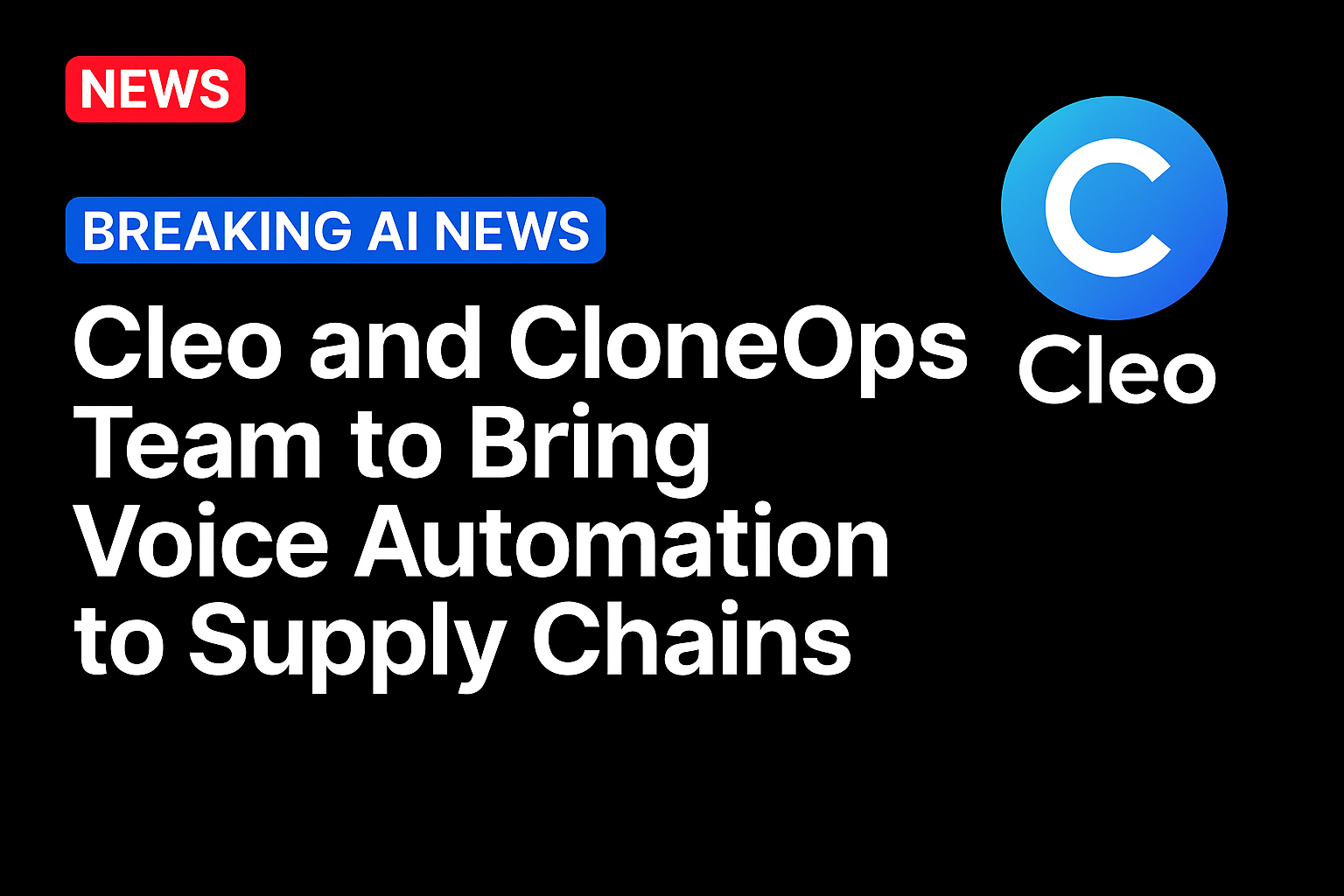
Supply chain orchestration company Cleo has joined forces with CloneOps.ai, a provider of AI virtual agents.
The partnership is designed to bring intelligent voice automation to logistics and transportation companies to improve communication across the supply chain, according to a Tuesday (Oct. 21) news release.
“The partnership will focus on a go-to-market strategy that integrates CloneOps.ai’s voice automation technology with supply chain orchestration solutions comprising the CIC platform, Cleo Network, and vertical-market solutions catering to the specific needs of logistics and transportation companies,” the companies said in the release.
“Combined, CIC and CloneOps.ai expect to empower joint customers to respond in real-time to unforeseen or disruptive supply chain events faster and more intelligently, reducing downtime and improving service levels to create relationship value.”
According to the release, CloneOps offers artificial intelligence (AI) voice agents that integrate into existing workflows, automating repetitive tasks and optimizing call flows to improve customer engagement and operational efficiency.
The companies say these capabilities line up with Cleo’s goal of orchestrating supply chain ecosystems using B2B integration and automation.
“By teaming up with CloneOps.ai, we’re bringing the voice channel into the realm of supply chain orchestration, giving our customers a faster, more immediate, and far more powerful new ways to automate and control day-to-day business interactions and keep their operations moving,” Cleo President and CEO Mahesh Rajasekharan said in the announcement.
PYMNTS wrote last week about the use of AI to identify and quantify a host of supply chain risks, including weather, supplier slowdowns and compliance failures, before they escalate.
“Procurement and logistics platforms are embedding models that track supplier reliability and regional performance signals,” the report said. “When lead times start to slip or when customs data points to potential delays, these systems alert planners before production or delivery schedules are affected.”
The report also cited a study from earlier this year by BCG showing that procurement functions using generative AI can reduce costs by 15% to 45%, depending on category, while automating up to 30% of routine work.
These efficiencies are now going beyond procurement into production and logistics, where early adopters are seeing lower transport costs and shorter lead times.
Reporting by PYMNTS finds CFOs are increasingly viewing supply-chain finance as a strategic function. FIS executives say AI and automation are transforming working-capital management by connecting payments, procurement and logistics systems.
“This integration allows companies to strengthen liquidity positions, extend early-payment programs to suppliers, and improve financial visibility across global operations,” PYMNTS wrote.
Source: https://www.pymnts.com/

